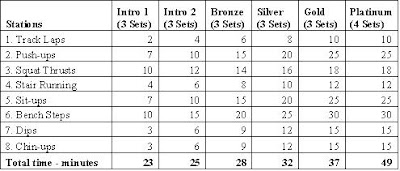Siddhartha on the value of fasting
Today, I'm (accidentally) honing the skill to "ward off hunger for a long time and laugh at it." It's a superpower I don't have yet. I do have the "skill" of being overcome by my hunger and eating for a long time...
My mindset of treating fasting as a skill is taken from a conversation between Siddhartha and a merchant. The last paragraph is particularly insightful.
I'd love to here your experience with fasting if you have any, along with what worked best for you.
Here's the convo:
Siddhartha: "That seems to be the way of things. Everyone takes, everyone gives. Life is like that."
Merchant: "Ah, but if you are without possessions, how can you give?"
Siddhartha: "Everyone gives what he has. The soldier gives strength, the merchant goods, the teacher instructions, the farmer rice, the fisherman fish."
Merchant: "Very well and what can you give? What have you learned that you can give?
Siddhartha: I can think, I can wait, I can fast."
Merchant: "Is that all?"
Siddhartha: "I think that is all."
Merchant: "And of what use are they? For example, fasting, what good is that?"
Siddhartha: "It is of great value, sir. If a man has nothing to eat, fasting is the most intelligent thing he can do. If, for instance, Siddhartha had not learned to fast, he would have had to seek some kind of work today, either with you, or elsewhere, for hunger would have driven him. But, as it is, Siddhartha can wait calmly. He is not impatient, he is not in need, he can ward off hunger for a long time and laugh at it. Therefore, fasting is useful, sir.”
― Siddhartha, by Hermann Hesse
And here are some additional insights from Tim Ferriss from "Tools of Titans" on why Siddhartha's response is so powerful.
"I can think: Having good rules for decision-making, and having good questions you can ask yourself and others.
"I can wait: Being able to plan long-term, play the long game, and not mis-allocate your resources.
"I can fast: Being able to withstand difficulties and disaster. Training yourself to be uncommonly resilient and have a high pain tolerance."
My mindset of treating fasting as a skill is taken from a conversation between Siddhartha and a merchant. The last paragraph is particularly insightful.
I'd love to here your experience with fasting if you have any, along with what worked best for you.
Here's the convo:
Siddhartha: "That seems to be the way of things. Everyone takes, everyone gives. Life is like that."
Merchant: "Ah, but if you are without possessions, how can you give?"
Siddhartha: "Everyone gives what he has. The soldier gives strength, the merchant goods, the teacher instructions, the farmer rice, the fisherman fish."
Merchant: "Very well and what can you give? What have you learned that you can give?
Siddhartha: I can think, I can wait, I can fast."
Merchant: "Is that all?"
Siddhartha: "I think that is all."
Merchant: "And of what use are they? For example, fasting, what good is that?"
Siddhartha: "It is of great value, sir. If a man has nothing to eat, fasting is the most intelligent thing he can do. If, for instance, Siddhartha had not learned to fast, he would have had to seek some kind of work today, either with you, or elsewhere, for hunger would have driven him. But, as it is, Siddhartha can wait calmly. He is not impatient, he is not in need, he can ward off hunger for a long time and laugh at it. Therefore, fasting is useful, sir.”
― Siddhartha, by Hermann Hesse
And here are some additional insights from Tim Ferriss from "Tools of Titans" on why Siddhartha's response is so powerful.
"I can think: Having good rules for decision-making, and having good questions you can ask yourself and others.
"I can wait: Being able to plan long-term, play the long game, and not mis-allocate your resources.
"I can fast: Being able to withstand difficulties and disaster. Training yourself to be uncommonly resilient and have a high pain tolerance."

Comments